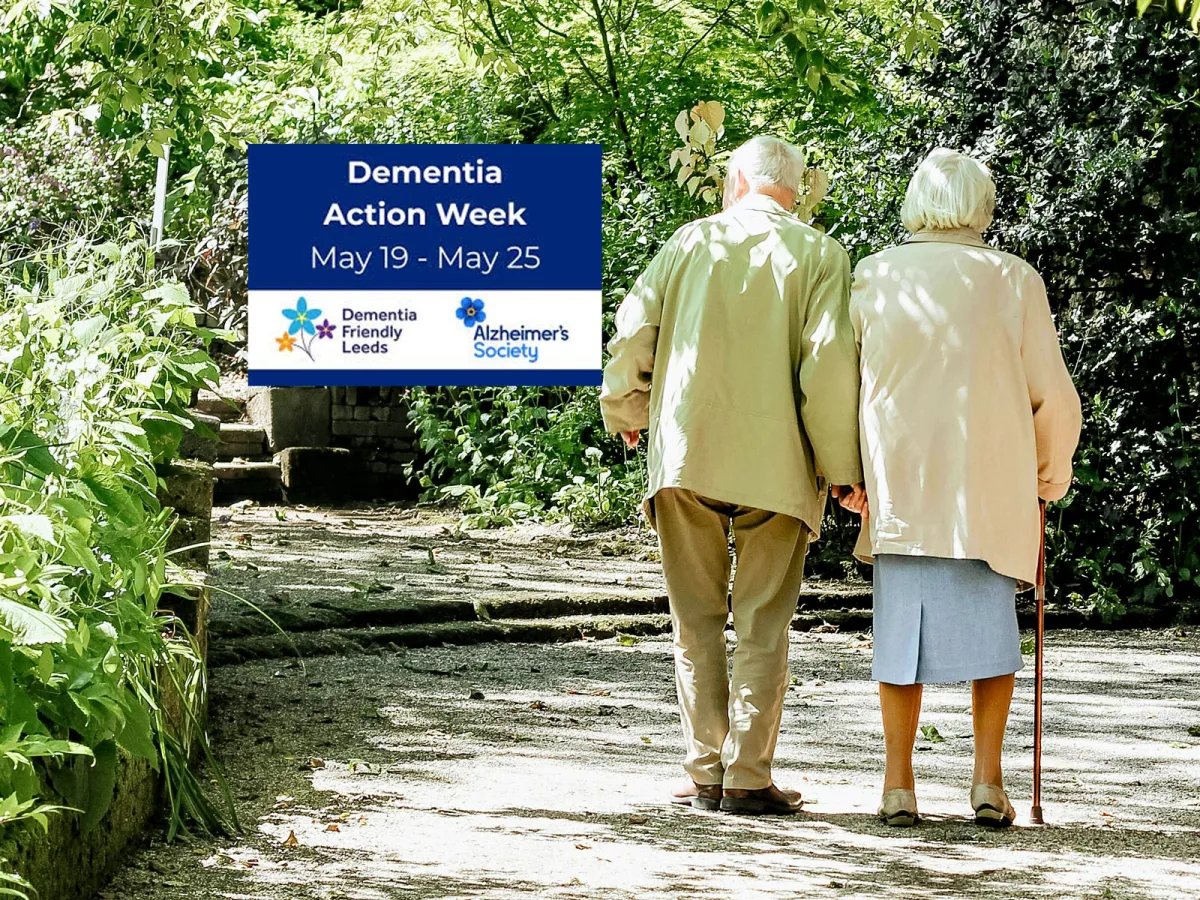
Understanding Vascular Dementia and Continuing Healthcare
Understanding Vascular Dementia and Continuing Healthcare
As part of Dementia Action Week, we’re focusing on the different types of dementia and how they affect not just individuals, but also the families and carers supporting them. Today, we're looking at Vascular Dementia, the second most common form of dementia in the UK after Alzheimer's disease.
*Please note that this blog post is for information purposes only, and should not be a substitute for medical advice. If you suspect you or a loved one has Vascular Dementia, please seek advice from a medical professional.*
At Winston Solicitors, we support families dealing with the legal and financial challenges that often arise following a diagnosis of dementia. Our Continuing Healthcare (CHC) specialist, James Urquhart-Burton, regularly helps clients access funding for care through the NHS Continuing Healthcare system. In this blog, we’ll explore what Vascular Dementia is, how it’s diagnosed and managed, and how families can navigate the complicated landscape of long-term care funding.
For expert advice on Continuing Healthcare Funding call 0113 320 5000
What Is Vascular Dementia?
Vascular dementia is caused by reduced blood flow to the brain. This lack of blood supply leads to damage or death of brain cells and can result in problems with memory, thinking, and reasoning. Unlike Alzheimer's disease, which develops due to a build-up of abnormal proteins, vascular dementia is linked to issues with blood circulation, often following strokes or small vessel disease.

Sometimes the decline is sudden and severe, such as after a major stroke. In other cases, the progression may be more gradual, especially if it results from multiple small, unnoticed “mini-strokes” (transient ischaemic attacks or TIAs).
Common Symptoms of Vascular Dementia
Symptoms vary depending on the part of the brain affected and the extent of the damage. However, some typical signs include:
- Problems with concentration and attention
- Slowed thinking and difficulty planning or organising
- Confusion and disorientation
- Difficulty with language or speech
- Mood changes and apathy
- Memory loss (though often less severe than in Alzheimer’s disease)
- Physical symptoms such as poor balance, difficulty walking, or weakness
Because symptoms can overlap with other types of dementia and normal ageing, vascular dementia is sometimes missed or misdiagnosed. That’s why it’s essential to get a full medical assessment if you notice persistent cognitive changes in yourself or a loved one.
How Is Vascular Dementia Diagnosed?
Diagnosing vascular dementia typically involves a combination of:
- Cognitive tests to assess memory, attention, and problem-solving
- Brain imaging, such as MRI or CT scans, to detect strokes, lesions, or reduced blood flow
- Blood tests to rule out other causes
- Medical history, especially if there’s a known history of stroke, heart disease, diabetes, or high blood pressure
A diagnosis of vascular dementia can be difficult for families to come to terms with. Not just emotionally, but practically. Unlike conditions with a clear-cut progression, vascular dementia can fluctuate. Good days and bad days may make it hard to predict how much support is needed at any one time.
Progression and Prognosis
One of the hardest things about vascular dementia is its unpredictable trajectory. Some people experience long plateaus followed by sudden declines. While others show steady deterioration.
The average life expectancy after diagnosis is around five years, but this can vary widely depending on general health, the severity of the underlying vascular disease, and how early the condition was caught. Although there is no cure, medication and lifestyle changes (such as controlling blood pressure, stopping smoking, and eating healthily) can help manage symptoms and potentially slow the progression.
Importantly, vascular dementia rarely exists in isolation. Many individuals also experience mixed dementia, where vascular damage co-exists with Alzheimer’s-type changes in the brain.
Supporting Someone with Vascular Dementia
Living with or caring for someone with vascular dementia often involves adapting to a changing set of needs. Early on, the person may remain fairly independent but might need help organising daily tasks or managing finances. As the condition progresses, support may be required for:
- Personal care
- Medication management
- Mobility support
- Supervision to prevent falls or wandering
- Emotional and mental health support
Many families reach a point where care at home becomes unmanageable. At this stage, professional care in a residential or nursing home may be necessary. However, the costs associated with this can be significant. Which brings us to an often-overlooked area of support - NHS Continuing Healthcare.
What Is NHS Continuing Healthcare (CHC)?
NHS Continuing Healthcare is a package of fully funded care provided by the NHS for individuals with complex health needs. Unlike local authority social care, CHC is not means-tested. This means your savings or property are not considered when determining eligibility - the decision is based solely on health needs.
If your loved one has vascular dementia and their condition is causing significant health needs, they may qualify for CHC funding. This funding can cover:
- Residential care fees
- Nursing care
- Domiciliary (at-home) care
- Equipment and support for complex health management
However, accessing CHC funding can be notoriously difficult. The criteria are complex, the process can be slow and inconsistent, and many applications are initially refused, even when individuals are entitled to support.
For expert advice on Continuing Healthcare Funding call 0113 320 5000
Why Vascular Dementia Should Be Considered for CHC
Because vascular dementia often presents with fluctuating symptoms and physical complications (such as mobility issues, falls risk, and stroke aftercare), individuals may meet the eligibility criteria for CHC.
However, many families are told their loved one’s needs are “social” rather than “health” related. A distinction that can feel both arbitrary and unfair. In reality, caring for someone with vascular dementia can involve:
- Managing medication for co-existing health conditions
- Dealing with complex behaviours or confusion
- Monitoring for stroke risks or other cardiovascular events
- Providing regular nursing care
- These are health needs, and they should be assessed as such.
How Winston Solicitors Can Help
At Winston Solicitors, we’ve helped many families successfully apply for NHS Continuing Healthcare. Even in cases where initial applications were declined.
We can support you by:
- Reviewing your loved one’s care needs and eligibility
- Preparing for assessments and multidisciplinary team meetings
- Representing you at assessment and appeal meetings
- Appealing decisions that we believe are incorrect
We understand how emotional and overwhelming this process can be. Particularly when you're also dealing with the day-to-day challenges of supporting someone with dementia. Our aim is to give you peace of mind, practical support, and, most importantly, justice in accessing care funding.
A Final Word for Dementia Action Week
Vascular dementia can be difficult, not just in terms of symptoms, but in the decisions it forces families to make. But you don’t have to face it alone.
If you’re caring for a loved one with vascular dementia, or if you’re unsure whether they might qualify for NHS Continuing Healthcare funding, please get in touch with our specialist team. We’re here to help you navigate the system and secure the support your family deserves.

